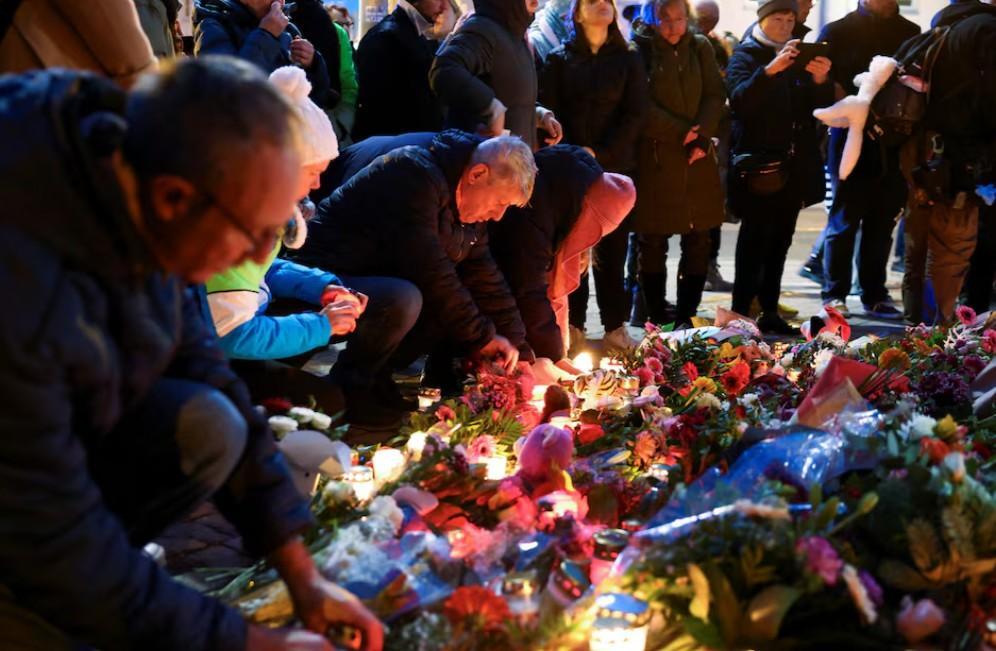 |
|
The recent Christmas market attack in Germany, resulting in five deaths and over 200 injuries, has ignited a fierce debate surrounding international justice and the complexities of extradition. The alleged perpetrator, Taleb A., is accused of fleeing Saudi Arabia in 2006 following accusations of serious crimes, including rape. Germany's refusal to extradite him to Saudi Arabia, citing human rights concerns, has drawn sharp criticism from various quarters, most notably from billionaire Elon Musk, who described the decision as "suicidal empathy."
Musk's statement, while blunt, highlights the tension between national sovereignty, international cooperation in combating crime, and concerns about the potential for human rights abuses in the receiving country. The argument against extradition centers on the potential for Taleb A. to face torture, unfair trial, or other violations of his fundamental human rights if returned to Saudi Arabia. This concern is rooted in well-documented human rights challenges in the Saudi Arabian judicial system, where due process is not always guaranteed and the death penalty is frequently applied. Germany's decision, therefore, can be viewed as a prioritization of human rights over satisfying the demands of another nation-state for the return of a fugitive.
However, the decision also raises questions about international legal cooperation and the fight against terrorism. Saudi Arabia, as the country where the suspect allegedly committed previous crimes and potentially planned the attack, understandably seeks his return to face justice within its own legal system. The refusal to extradite can be seen as hindering efforts to bring perpetrators of serious crimes to justice, potentially emboldening others to commit similar acts. It presents a challenge to international efforts to combat transnational crime, where cooperation between nations is crucial for effective law enforcement.
The complexities are further amplified by the political implications. Germany's decision could strain its relationship with Saudi Arabia, impacting diplomatic ties and potentially economic interests. Conversely, a decision to extradite could damage Germany's international reputation as a proponent of human rights and due process, potentially undermining its moral authority on the world stage. The case of Taleb A. thus serves as a microcosm of the larger challenges faced by nation-states in navigating the conflicting demands of national interests, international cooperation, and the protection of fundamental human rights.
The debate extends beyond the specific case of Taleb A. and highlights broader questions about the responsibility of states to protect their citizens from violence while simultaneously upholding international legal norms and respect for human rights. It forces us to consider the delicate balance between the need for effective law enforcement and the imperative to safeguard individual rights, particularly in contexts where the receiving country's human rights record is questionable. There is no easy solution, and the case underscores the necessity for more robust international mechanisms to ensure fair trials and the protection of human rights in cross-border criminal investigations.
Furthermore, the involvement of Elon Musk introduces another layer of complexity. His public condemnation of Germany's decision, while reflecting a certain perspective, may not take into account the full range of legal and ethical considerations involved in extradition cases. His statement highlights the growing influence of social media and public opinion on matters of international diplomacy and justice, potentially shaping narratives and influencing policy decisions in ways that may not be entirely informed or balanced.
Ultimately, the case of Taleb A. underscores the ongoing tension between national security, international cooperation, and the fundamental right to a fair trial and protection from human rights abuses. It is a case that will undoubtedly continue to generate debate and raise critical questions about the intricate interplay between international law, national interests, and the protection of fundamental human rights in the context of cross-border criminal justice.
